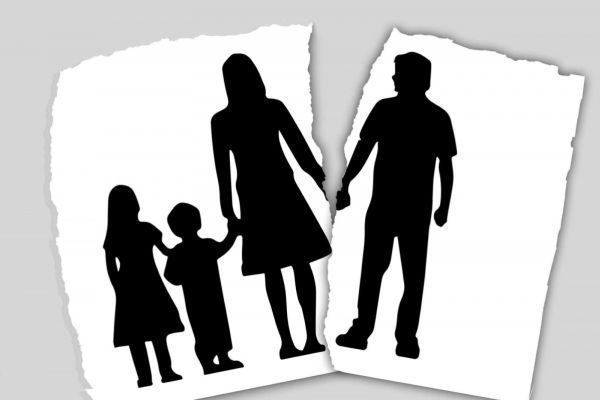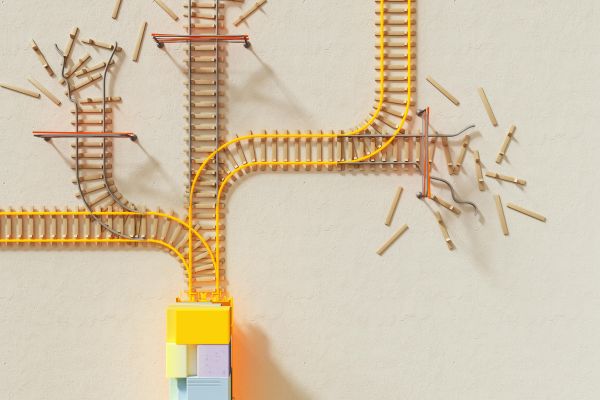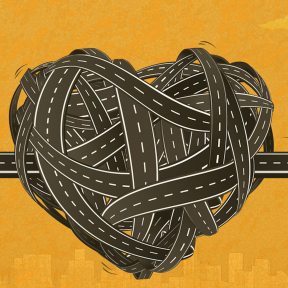The dissolution of a marriage is almost always an upsetting event, at the very least marked by disappointment and the loss of dreams and expectations.
In addition, there are legal, financial, parental, emotional, and practical challenges that require time, energy, and changes in responsibilities. It can take people years to regain equilibrium. Nevertheless, divorce serves an important function legally and emotionally.

One of the most significant events of the 20th century was a change in the roles women could take on in private and public life, allowing women more opportunities for satisfaction and happiness. With a shift in roles inside and outside the house came a necessary—and often contentious—shift in the division of responsibilities inside the home, one of many factors fueling a highly publicized rise in divorce rates and liberalization of divorce laws.
Infidelity has long been a leading cause of divorce, along with financial upheavals. But one consequence of liberalized attitudes to divorce is a major addition to that list—the search for emotional closeness. Individuals today have high expectations for relationship satisfaction.
Research suggests that common reasons for divorce include lack of intimacy, lack of commitment, infidelity, and basic incompatibility. Other prevalent causes are constant conflict, financial differences, addiction, and abuse. Many people articulate the root of their divorce as a betrayal—of expectations, hopes, and dreams for the marriage.
A therapist can help you reach a decision by exploring the struggles you’re facing, identifying whether or not those problems can be resolved, creating a realistic picture of what life would look like afterward, and how your children could be affected and protected. In the process of answering these questions, a moment of clarity often emerges.
This can be one of the most difficult and painful conversations—so it’s worth taking time to prepare. Be kind, direct, and firm; avoid blaming, shouting, or being defensive. Lay out a plan for where you or your partner could live short term. Acknowledge your spouse’s emotions, and allow them to process the change before sharing it with others.
The divorce rate is surprisingly difficult to measure, but the famous “50 percent” statistic may be an overestimate. Some estimates place the divorce rate around 42 to 45 percent. Demographic and socioeconomic factors linked to a lower likelihood of divorce include a higher education level, marrying at an older age, and not having divorced previously.

Divorce is as much an emotional process as it is a legal process, and It takes courage to start the process of splitting. One or both partners may experience waves of self-doubt. Both need an array of skills to work out the inevitable conflicts and disappointments that arise.
During divorce, two people must come to terms with the relationship failure, set up emotionally and usually financially independent lives, and put the relationship firmly in the past. It is important to understand and accept the role each partner played in the relationship breakdown. It is often helpful for divorcing partners to set up rules of engagement to limit contact with each other. The outside perspective of a professional counselor can be especially beneficial.
Eventually, the emotional turbulence subsides and it becomes possible—and necessary—to incorporate a richly nuanced story of the relationship, its failure, the divorce, and the resulting emotional growth into one's identity. Many exes find it helpful to adopt some kind of ritual—such as an exchange of letters or gifts—to mark the end, acknowledging a past together and moving toward a future apart.
A divorce can lead to deep or surprising losses. For parents, spending less time with children often hits hardest, in addition to the partnership of sharing in a child’s successes and disappointments. People may feel that they’ve lost their best friend, family traditions, financial security, and vision for the future. Acknowledging these losses is the first step toward healing.
It can be incredibly difficult to release the anger that can accompany rejection and divorce. People may resist moving forward because they aren’t ready to detach from their suffering. Letting go of anger means letting go of the hope that the other person will ever feel remorse, see their perspective, or come back to them.
The first step is to accept that the divorce is happening, even if it wasn’t your choice. Try to work through your emotions—through journaling, friends, divorce support groups, or therapy—before beginning legal proceedings. If possible, choose a process that keeps you out of court. Finally, work toward forgiveness, both for your ex and yourself.

Divorce usually breaks up a household and its routines. Children need assurance that they are still loved by both parents and that they will not be abandoned. They also need to be spared any conversations in which one parent denigrates the other for any reason. It is usually not the actual divorce that harms children but seeing their parents fight and in distress.
Because every child reacts differently to divorce, parental response is best tailored to the needs of each child. Often, kids are scared, confused, angry, or disappointed in one or both parents. The stress of the split and readjustment to change—especially if a household move is involved—can heighten anxiety, increase irritability, create behavior problems, beget social withdrawal or difficulty sleeping. There may be a drop in classroom attentiveness, and grades may suffer.
Many of the effects of divorce on children are short lived and resolve within a year or two. But others may be longer lasting and play out in later attitudes toward romantic relationships.
Research shows that children are not necessarily affected by living with a single parent. Family conflict, however, can lead to struggles with mental health, self-esteem, school, and future relationships. The more parents work to reduce conflict, the better off children will be.
Tell your child soon after the decision has been made, and have a conversation together as a family. Explain the facts that matter to them—where they will live, who will pick them up from school—so that they know what to expect. Continue to emphasize your love for them, and the fact that that will never change.
Talk with your child regularly about the emotions they’re experiencing, and accept and validate those feelings. Prepare them for upcoming changes, such as a parent moving out. Keep a schedule, maybe even with a calendar on a wall, so they know what to expect and when they will see each parent.
Successful co-parenting involves shielding children from parental conflict, showing respect for the other parent in front of your child, and supporting their relationship. Maintain open communication with the other parent when possible, or establish an agreed-upon co-parenting schedule. Aim to maintain the child’s routines, activities, relationships, and community.















